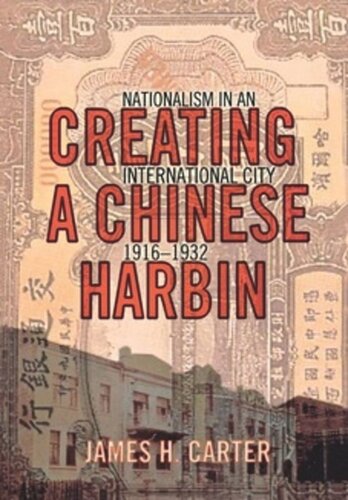

Most ebook files are in PDF format, so you can easily read them using various software such as Foxit Reader or directly on the Google Chrome browser.
Some ebook files are released by publishers in other formats such as .awz, .mobi, .epub, .fb2, etc. You may need to install specific software to read these formats on mobile/PC, such as Calibre.
Please read the tutorial at this link: https://ebookbell.com/faq
We offer FREE conversion to the popular formats you request; however, this may take some time. Therefore, right after payment, please email us, and we will try to provide the service as quickly as possible.
For some exceptional file formats or broken links (if any), please refrain from opening any disputes. Instead, email us first, and we will try to assist within a maximum of 6 hours.
EbookBell Team

4.3
8 reviewsJames H. Carter outlines the birth of Chinese nationalism in an unlikely setting: the international city of Harbin. Planned and built by Russian railway engineers, the city rose quickly from the Manchurian plain, changing from a small fishing village to a modern city in less than a generation. Russian, Chinese, Korean, Polish, Jewish, French, and British residents filled this multiethnic city on the Sungari River. The Chinese took over Harbin after the October Revolution and ruled it from 1918 until the Japanese founded the puppet state of Manchukuo in 1932. In his account of the radical changes that this unique city experienced over a brief span of time, Carter examines the majority Chinese population and its developing Chinese identity in an urban area of fifty languages. Originally, Carter argues, its nascent nationalism defined itself against the foreign presence in the city—while using foreign resources to modernize the area. Early versions of Chinese nationalism embraced both nation and state. By the late 1920s, the two strands had separated to such an extent that Chinese police fired on Chinese student protesters. This division eased the way for Japanese occupation: the Chinese state structure proved a fruitful source of administrative collaboration for the area's new rulers in the 1930s.